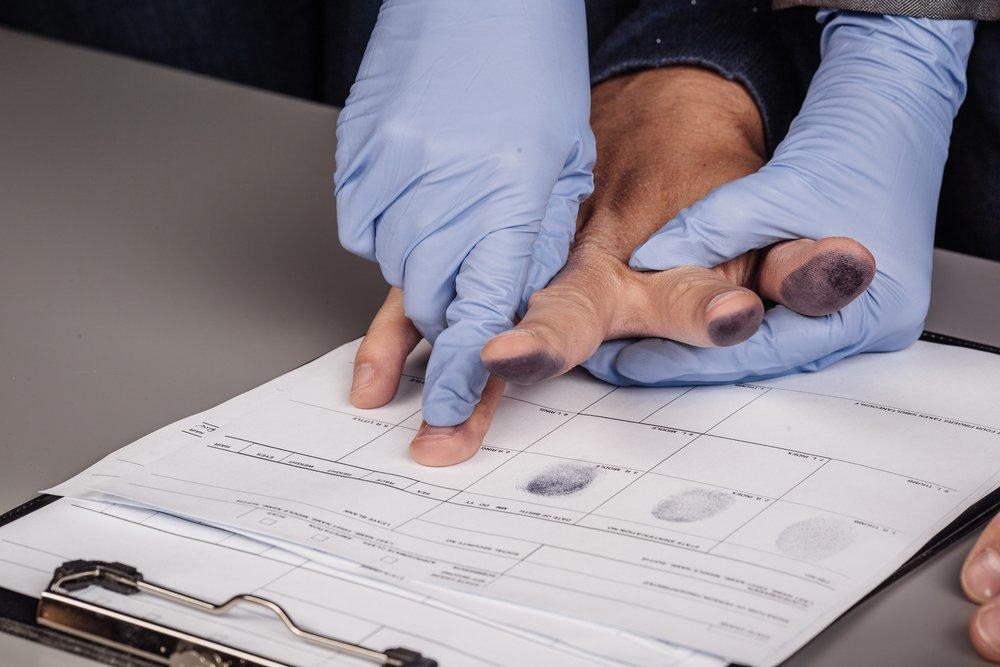Contents:
- Medical Video: Side-effects to taking blood thinners
- How do blood thinners work?
- Who needs to use blood thinners?
- List of medicines commonly used to thin the blood
- Antiplatelet group
- Anticoagulant group
- What are the side effects of using blood thinners?
Medical Video: Side-effects to taking blood thinners
Not just anyone can take blood thinners. That is why, most of these drugs can only be redeemed by prescription. Here are all the complete information you need to know about blood thinning drugs - starting from how the drug works, who needs it, the types of blood thinning drugs, to the risk of side effects.
How do blood thinners work?
Blood thinning drugs work to prevent blood clots in blood vessels. Blood clots can block blood flow to the heart muscle and cause a heart attack. Blood clots can also block the flow of blood to the brain, which eventually causes a stroke.
Blood thinners can be in the form of drugs taken or injected.There are two types of thinning drugs that can be found on the market, namely antiplatelet thinners or anticoagulants. Different types of drugs, also different ways it works.
Antiplatelet works to prevent the collection of blood clotting cells in blood vessels and arteries so that blood can remain runny. This type of anticoagulant works to prevent blood from freezing by prolonging the occurrence of blood clots.
Who needs to use blood thinners?
Your doctor may recommend this medicine if you have one or more of the following conditions:
- Heart disease
- Problems with blood circulation
- Abnormal heartbeat
- Congenital heart defects
Your doctor may also prescribe this medication if you are going to undergo heart valve surgery.
List of medicines commonly used to thin the blood
As explained above, there are two classes of blood thinning drugs: anticoagulant drugs that prevent blood clots and antiplatelets that keep blood thin. Here's a list of names of blood thinning drugs based on their class.
Antiplatelet group
Aspirin
Aspirin is a painkiller that is usually used to treat fever, headaches, and inflammation. However, aspirin is also an antiplatelet agent that worksinhibits the formation of blood clots in stroke patients, thus preventing the stroke from recurring.
Aspirin will help prevent blood platelets from making blood too thick, thereby reducing the risk of clots. Taking aspirin on a regular basis will reduce your body's ability to stop bleeding because doctors take this drug so that aspirin can thin the blood
Clopidogrel (Plavix)
Clopidogrelis a blood thinning drug to prevent heart attacks in people who have recently developed heart disease, stroke, or blood circulation disease (peripheral vascular disease).
Clopidogrel is also used with aspirin to treat shortness of breath that worsens due to a new heart attack, unstable angina, and to prevent blood clots after certain heart procedures (such as cardiac stents).
This drug works to inhibit blood clots. So you are advised to be more careful not to get hurt while taking it. The effect of this drug can prolong the process of wound healing.
Dipyridamole
Dipyridamole drug is used to prevent blood clots after heart valve replacement surgery.
This drug is usually used with aspirin to reduce the risk of death after experiencing a heart attack or to prevent a heart attack. The brand names commonly found in antiplatelet drugs with the active ingredient dipyridamole are premole, perdantine, and aggrenox.
Ticlopidine (Ticlid)
Ticlopidine is used to prevent strokes in people who cannot use aspirin or when taking aspirin alone is not effective in preventing strokes.
Especially for people who are afterput on a heart ring or implant stent, doctors usually prescribe aspirin and ticlopidine for 30 days - which can be adjusted to the patient's condition.
Prasugrel (Effient)
Prasugrel is taken once a day to help prevent serious heart and blood vessel problems. Do not stop the dosage of prasugrel without the knowledge of the authorized doctor. Stopping the dose carelessly can increase the risk of heart attack and blood clots.
The side effects of Prasugrel can have side effects such as dizziness, excessive fatigue, pain in the back, arms or legs, and coughing.
Ebtifibatide (Integrilin)
Eptifibatide works to prevent heart attacks in people who experience unstable angina. Integrilin is also used to prevent blood clots before surgery to launch a procedure to open arteries and insert objects or surgical instruments.
Ticagrelor
This drug is used together with aspirin to prevent complications of the heart and blood vessels which are a fatal risk to peoplewho has had a heart attack or severe chest pain.
Ticagrelor is also prescribed to people who have pins attached to blocked blood vessels to improve blood flow. The brand name of the type of drug containing ticagrelor is brilinta.
Anticoagulant group
Warfarin
Warfarin has a trademark name named Coumadin and Jantoven. This drug works by reducing the formation of blood clots. Warfarin is used to prevent heart attacks, strokes, and blood clots in blood vessels and arteries.
Enoxaparin
Enoxaparin is a blood thinning drug in the form of injection or injection. This drug is used to prevent blood clots in the legs of patients who are in bed rest or during abdominal surgery. In other conditions, enoxaprin is used in conjunction with warfarin to treat blood clots that have occurred in leg veins.
Enoxaparin keeps blood flow smooth by reducing the freezing activity of proteins in the blood, thereby helping to reduce the risk of heart attack.
This drug is used in combination with aspirin to prevent complications of angina (chest pain) and heart attacks. The brand name of this drug is Lovenox.
Heparin
Heparin is a blood thinning drug that works to prevent blood clots and prevent possible complications of heart disease that can be fatal, such as a heart attack. Heparin is also commonly used to prevent blood clots after surgery.Heparin works faster than warfarin. So, this drug is usually given in emergency situations that require lightning effects.
Long-term heparin doses can increase the risk of osteoporosis. To get around this, doctors usually replace the dose with warfarin for long-term treatment.
Edoxaban
Edoxaban (Savayasa) is a drug used to treat deep venous thrombosis (DVT) and its complications, including pulmonary embolism, after patients are given injectable blood thinning drugs for 5-10 days.
Fondaparinux (Arixtra)
Fondaparinux is a drug that is used to treat serious blood clots in the legs and / or lungs.Fondaparinux is only available in injection form, which is usually injected once a day depending on the condition of each person.
Dabigatran (Pradaxa)
Dabigatran is a tablet drug that is used to prevent strokes and blood clots that are dangerous (for example on your feet or lungs) if you have a type of irregular heartbeat (atrial fibrillation). Atrial fibrillation causes part of the heart to not work normally. This can cause blood clots to form and increase the risk of stroke or heart attack.
Dabigatran has several side effects such as abdominal pain, heartburn and nausea.
Apart from those listed above, there are still many other anticoagulant drugs, apixaban (Eliquis) and rivaroxaban (Xarelto).
What are the side effects of using blood thinners?
There are several side effects associated with blood thinning drugs, both anticoagulants and antiplatelets.
The following are some side effects that can occur:
- Easy bruising
- Urine is red or pink
- Feces bleed or look like coffee grounds
- More menstrual bleeding than usual
- Toes become purple
- Pain, temperature changes, blackish areas appear on fingers, toes, hands or feet
Some of the effects can be serious. Therefore, you still have to routinely control your doctor while taking blood thinners. Especially if you also have diabetes, high blood pressure, balance problems, heart failure, or liver or kidney problems.













